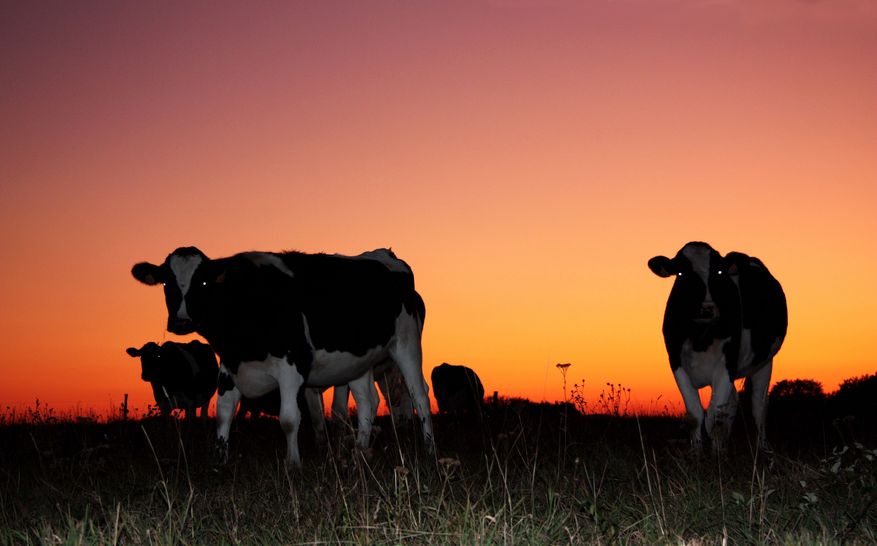
Disruption to dairy supply chains as a result of Brexit may force up prices, limit choice and potentially drive people to less healthy alternatives, according to a body representing European dairy processors.
The European Dairy Association (EDA), which is seen as the voice of the European milk processing industry in Brussels, has warned that the dairy industry is "no exception" to sectors' concerns surrounding Brexit.
There are 700,000 dairy farms across the European Union, 12,000 milk and processing sites and more than 300,000 people working in the sector.
The UK is the third-largest milk producer in the EU after Germany and France, and the tenth-largest producer in the world.
Because of the integrated nature of the supply chain, the body said any shock to this sector will affect the "industrial and societal backbone" of rural Europe.
Limitations on free and frictionless trade will have a particularly negative effect, the EDA warned. Tariff barriers and issues such as maintaining access to skilled labour, minimising delays at customs, regulatory divergence are all possible outcomes that could disrupt the sector.
It also highlighted that dairy is a mainstay of European diets, and warned that access to affordable and high-quality dairy produce could decline after the UK leaves the EU.
2014 Russian ban
To put this into context, the EDA used the example of the 2014 Russian ban on imports of dairy products. The body said this move "triggered a crisis" in the European dairy sector.
Significant changes were needed in the short term for exports of large volumes of milk and dairy products, such as finding and unlocking new markets.
The results of sudden changes in milk price and urgent intervention by the EU Commission still adversely affect the European and global dairy markets to this day.
Yet, compared to the experience of the Russian ban, Brexit has the potential to create a "completely new scale of milk crisis", the EDA said.
"Volumes of EU-27 butter sold in the UK are three times higher than were EU-28 butter exports to Russia. For cheese, EU-27 exports to the UK are twice the volumes we used to sell to Russia," the EDA said.
'Status quo'
To soothe turbulence in the industry, Dairy UK and the EDA have jointly developed a ‘Future UK-EU Dairy Framework’ setting out outcomes the industry hopes to be achieved in the current negotiations between the UK and the EU
The main priority is that the relationship between the EU and the UK remains as close as possible to the status quo after Brexit and throughout the transition period.
The framework calls for the UK to remain part of, or at least as close as possible to, the EU Single Market and the Customs Union.
This would secure the free movement of milk and dairy products between the EU and UK with no tariffs or quotas from either side for milk and dairy products, and limit non-tariff barriers to trade (SPS/TBT) as much as possible.
The frameworks also highlights the need for the EU and UK to have no significant divergence in the regulatory sphere when it comes to policies affecting dairy and dairy products.
The EDA added: "As they debate the future relationship between the UK and the EU, we urge decision-makers on both sides of the Channel to take these observations into account and to do all they can to avoid damaging our industry – and not to harm the consumers we serve. Don’t spill the milk."
